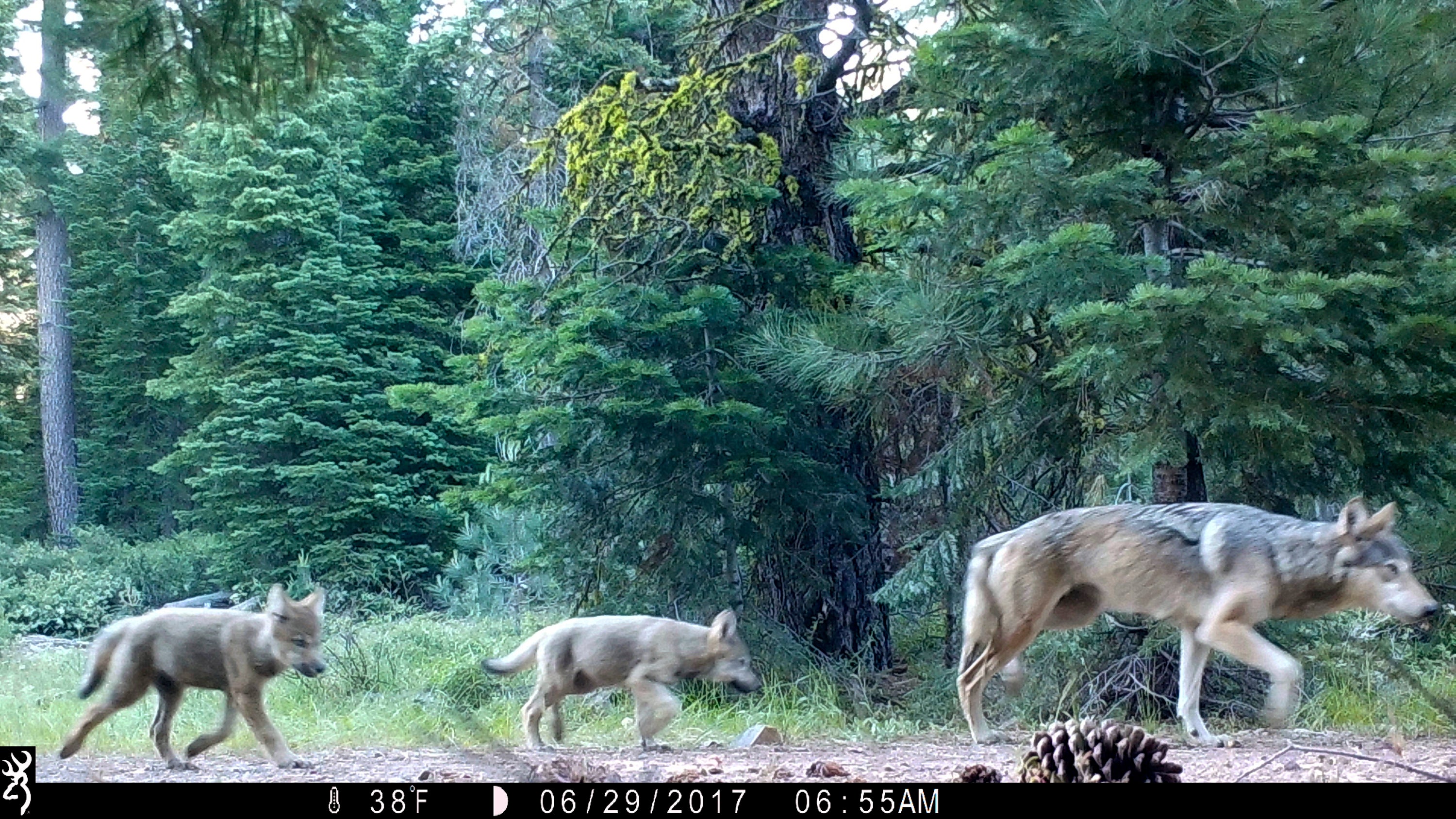Biden admin targets Trump rollbacks of species protections
The Biden administration says it is canceling or reviewing a host of actions by the Trump administration to roll back protections for endangered or threatened species, with a goal of strengthening a landmark law while addressing climate change

The Biden administration said Friday it is canceling or reviewing a host of actions by the Trump administration to roll back protections for endangered or threatened species, with a goal of strengthening a landmark law while addressing climate change.
The reviews by the U.S Fish and Wildlife Service and National Marine Fisheries Service are aimed at five Endangered Species Act regulations finalized by the Trump administration, including critical habitat designations and rules defining the scope of federal actions on endangered species. The Fish and Wildlife Service also said it will reinstate the so-called “blanket rule,” which mandates additional protections for species that are newly classified as threatened. Under former President Donald Trump, those protections were removed.
Habitat designations for threatened or endangered species can result in limitations on energy development such as mining or oil drilling that could disturb a vulnerable species, while the scoping rule helps determine how far the government may go to protect a threatened species.
Under Trump, officials rolled back protections for the northern spotted owl, gray wolves and other species, actions that President Joe Biden has vowed to review. His administration already has moved to reverse Trump’s decision to weaken enforcement of the century-old Migratory Bird Treaty Act, which made it harder to prosecute bird deaths caused by the energy industry.
The bird law was among more than 100 business-friendly Trump actions on the environment that Biden wants reconsidered and possibly revised or scrapped. The reviews announced Friday follow through on that executive order.
“The U.S. Fish and Wildlife Service is committed to working with diverse federal, tribal, state and industry partners to not only protect and recover America’s imperiled wildlife but to ensure cornerstone laws like the Endangered Species Act are helping us meet 21st century challenges,” said Martha Williams, principal deputy director of the Fish and Wildlife Service.
The agency looks forward to “continuing these conservation collaborations and to ensuring our efforts are fully transparent and inclusive,'' Williams added.
The reviews announced Friday will take months or years to complete. Many rules targeted by Trump originated with former President Barack Obama and took him years to undo, continuing a decades-old, back-and-forth between Democratic and Republican administrations with starkly differing approaches to environmental regulation.
Industry groups and Republicans in Congress have long viewed the Endangered Species Act as an impediment to economic development and they successfully lobbied for weakening the law’s regulations under Trump. Environmental groups and Democratic-controlled states battled the moves in court, but those cases remained unresolved when Trump left office in January.
Noah Greenwald with the Center for Biological Diversity said the environmental group was grateful to see the Trump rules being canceled or changed, particularly a rule that would have denied blanket protections for threatened species.
“We hope they move quickly so more species aren’t harmed,” Greenwald said.
Earthjustice attorney Kristen Boyles, who was involved in legal challenges to the Trump rules, said Friday’s announcement covered major changes under the previous administration that needed to be addressed. But Boyles said questions remain about what will happen while the new proposals go through a lengthy rule-making process.
“These will take time, and in the interim we don’t want the harm to continue,” she said.
The Biden administration said in January it was reconsidering a Trump rule that removed federal protections for wolves across most of the Lower 48 states, but officials so far have not backed away from the Trump rule and continue to defend it in court.
In the final days of the Trump administration, the Fish and Wildlife Service cut by one-third the amount of protected federal old-growth forest used by the spotted owl, a move that was cheered by the timber industry and slammed by Democrats and environmental groups.
The Biden administration has temporarily delayed putting the Trump-era rules into effect in order to review the decision.
Last week, the Biden administration proposed federal protections for the lesser prairie chicken, saying its habitat across five states is in danger of becoming more fragmented, with a further toll expected from the effects of climate change and drought. The chicken’s habitat spans parts of New Mexico, Colorado, Texas, Oklahoma and Kansas -- including a portion of the oil-rich Permian Basin.
The administration said this week that an extremely rare wildflower that grows only in Nevada’s high desert should be protected under the Endangered Species Act. The Tiehm’s buckwheat flower grows where an Australian mining company wants to dig for lithium.
___
Brown reported from Billings, Montana.
Bookmark popover
Removed from bookmarks